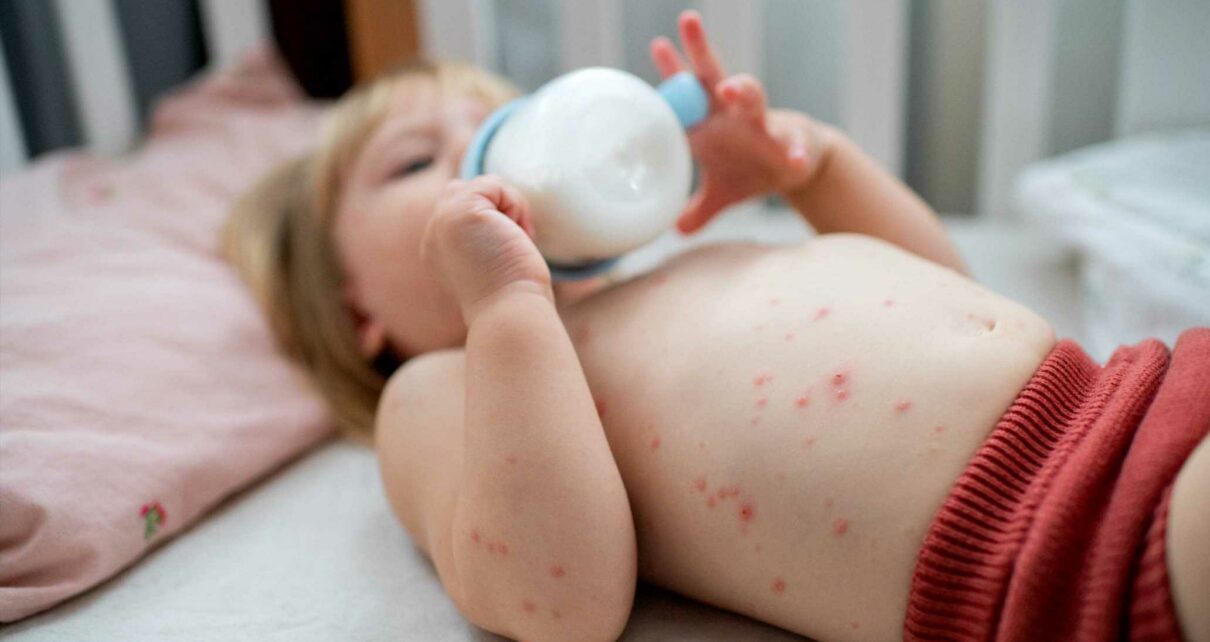IBUPROFEN is many people's go-to drug to dull pain, reduce swelling and generally treat minor illnesses.
But it should never be given to children with chickenpox, experts warn.
The over-the-counter medicine can trigger severe skin conditions in kids with the itchy rash.
One of the most serious is necrotising fasciitis – a life-threatening flesh-eating bug which requires immediate hospital treatment.
Dr Sarah Jarvis, an NHS GP, said: "Ibuprofen can be really effective at treating pain and discomfort in children.
"It can also help bring down a high fever if your child is distressed by it.
READ MORE ON CHILDREN’S HEALTH
Brits urged to get Covid boosters amid fears of back-to-school surge
Worried your child isn’t ok? Mental health red flags and what to do to help
"But if your little one has chickenpox, you should avoid using ibuprofen.
"That’s because it may increase the risk of serious skin infection among children who are infected with the chickenpox virus."
Abbas Kanani, pharmacist at Chemist Click Online Pharmacy, added: "Do not give ibuprofen for chickenpox unless it has been recommended by a doctor.
"It can increase the risk of a serious skin reaction.
Most read in Health

The obscure symptom of liver cancer that shows up while doing the washing up

The terrifying reasons you should never crack your neck

Millions to get Covid jabs from TODAY as fears over Pirola spark early rollout

Brits urged to get Covid boosters amid fears of back-to-school surge
"In severe cases, a condition called necrotising fasciitis has been known to occur, which is a severe and often life-threatening infection.
"Ibuprofen is a nonsteroidal anti-inflammatory drug (NSAID) and guidance on treating chickenpox from the National Institute for Health and Care Excellence (NICE) Clinical Knowledge Summaries (CKS) recommends that NSAIDs are avoided in children with chickenpox."
Necrotising fasciitis is caused by bacteria entering an open wound, such as a cut, scratch, burn, scald or insect bite.
It can also make its way into the body after surgery or injecting drugs.
The rapidly-progressing condition kills between 11 and 22 per cent of patients globally, according to the World Health Organization.
Chickenpox, one of the potential causes, is a highly contagious infection that causes an itchy, spotty rash.
It primarily affects children, and usually clears up by itself within two weeks without needing to see a doctor.
But it does carry several uncomfortable symptoms, including:
- An itchy, spotty rash
- Fluid-filled blisters
- Flaky scabs
- A high temperature
- Aches and pains
- Loss of appetite
- Generally feeling unwell
Ibuprofen isn't suitable to treat these problems, and medics recommend avoiding aspirin as well.
But there are other options, according to Abbas and Dr Jarvis.
Parents can try giving the child paracetamol to ease any pain and discomfort.
They can also use cooling creams or gels to lessen the itchiness of the rash.
Dr Jarvis said: "You can use paracetamol for pain and distress, but check the correct dose for your child’s age with your pharmacist.
"A drowsy-making antihistamine such as chlorphenamine can also be helpful to treat troublesome itching if your child is over one year old."
Abbas added: "You can use paracetamol products, such as Calpol, to reduce your child’s fever and pain.
Read More on The Sun
Mum spends benefits on designer school shoes for kid only for them to be banned
Kate Garraway reveals heartbreaking reason she kept hospital dash secret
"Avoid giving your child aspirin because it has been linked to some children developing Reye’s syndrome, which can damage their brain and liver."
The NHS also recommends drinking plenty of fluid to avoid dehydration, cutting the child's fingernails or putting socks on their hands at night to minimise scratching, bathing in cool water and wearing loose-fitting clothes.
Ibuprofen is not suitable for children who have:
- Chickenpox
- Ever had an allergic reaction to ibuprofen
- Asthma
- Stomach, heart, liver or kidney problems
- Health problems that mean they have an increased risk of bleeding
- Inflammatory bowel disease (IBD) – e.g. Crohn's disease or ulcerative colitis
- Signs of dehydration
Source: NHS
Source: Read Full Article






